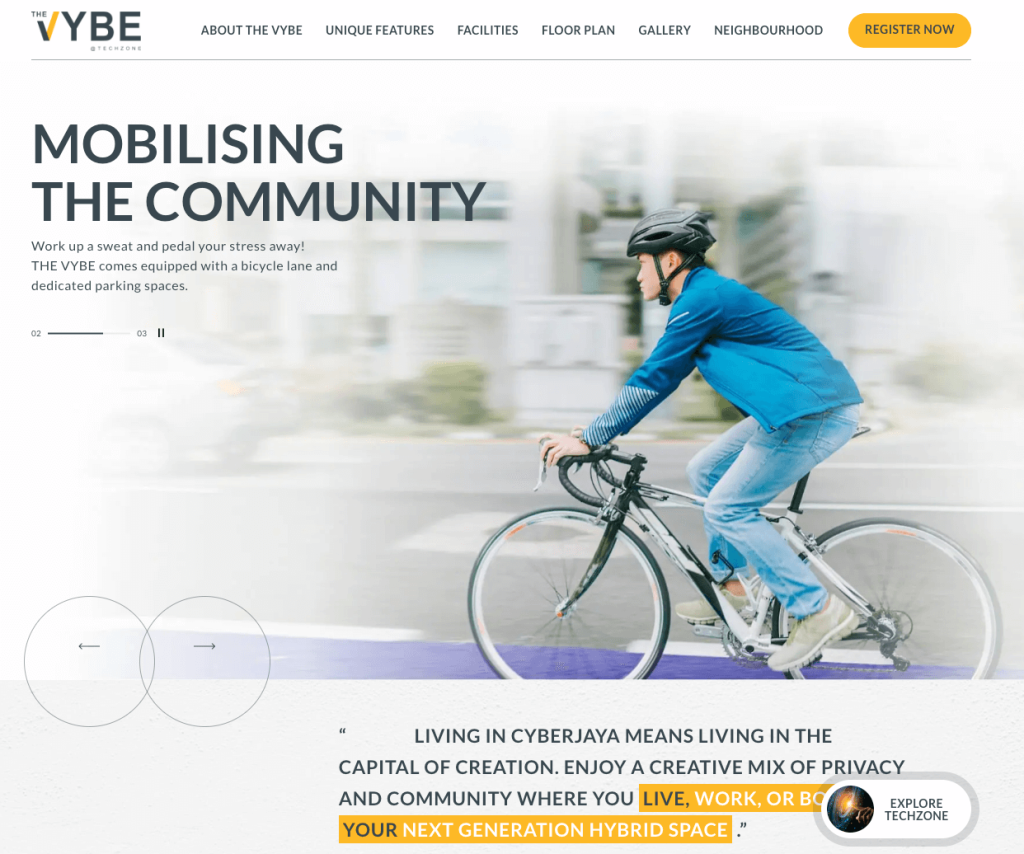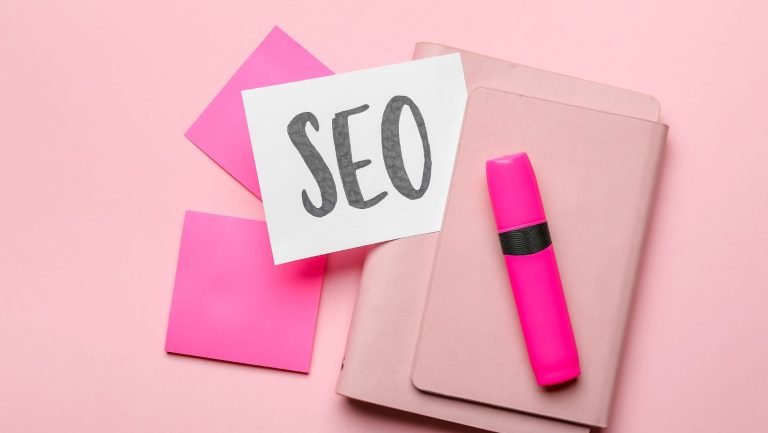Are Single Page Websites Bad For SEO?
Note: This post may contain affiliate links; I may earn a commission (at no extra cost to you) if you make a purchase via my links. See my disclosure for more info.

So, you’re considering a single page website for your business, but you’ve heard whispers in the SEO world that it might not be the best idea. You’re wondering, are single page websites really the SEO equivalent of shooting yourself in the foot? Will this decision tank your Google ranking potential? Let’s find out!
But first, let’s make sure we’re all on the same page (pun intended).
Table of Contents
What Exactly Is a Single Page Website?
A single page website is like a digital Swiss Army knife for your business. It crams all your content into one tidy page, and navigating it is as simple as scrolling through a well-crafted digital story. Check out The Vybe for a prime example of a single page website done right:

SEO 101
Search Engine Optimisation (SEO) is all about helping your website climb those Google rankings. It’s about being in the right place at the right time – when a potential customer is searching for what you’ve got. So if you’ve heard terms like keywords, page authority, and topical authority thrown around, these are the cogs that keep the SEO machine running.
By the way, summing up SEO in a snap is like trying to explain quantum physics to a toddler. If you’re still scratching your head about SEO, check out my SEO tips for a deeper dive.
So, Are Single Page Websites SEO Kryptonite?
Cue dramatic music …It depends. Like most things in life, there’s no clear-cut answer. To help you decide if a single page website will be a hero or villain in your SEO story, let’s weigh the pros and cons.
Single Page Websites: The SEO Pros
There are two main SEO advantages to single page websites. First, they usually boast a higher page authority ranking than their multi-page counterparts. That’s because every link to your site points to the same URL, so that page gets all the authority love instead of it being divvied up across multiple pages.
Second, single-page websites offer a user-friendly experience, especially on mobile. It’s much easier to scroll down to find what you need on phones and tablets. Plus, users don’t have to twiddle their thumbs waiting for new pages to load.
But honestly, I don’t think these pros are compelling enough to base your entire SEO strategy on a single page site. Multi-page websites can achieve these things too, while allowing for more robust SEO tactics. But I’m getting ahead of myself!
Single Page Websites: The SEO Cons
There are plenty of reasons why single page websites can be an SEO nightmare. A lot of it comes down to how much they limit your ability to show topical authority in your industry. Without dedicated pages for different topics, it’s tough to position yourself as the ultimate resource for all things related to your field. You’ll also struggle to cover all the relevant search queries tied to what you offer. It’s like trying to cram every sports topic into one podcast episode… it’s just not feasible.
And here’s the real kicker: there’s only so many keywords a single page can rank for.
Even if you’ve got a super niche offer and you’re thinking this doesn’t apply to you, hear me out.
A long single page site that covers EVERYTHING about your business can actually water down your relevance for your main target keywords, which are probably related to your offers. It’s like being a jack of all trades, but a master of none. By trying to squeeze everything onto one page, you might not rank as high for your most crucial keywords as you would if you had separate pages for your “About” info, contact details, and so on.
Lastly, when you’re working with just one page, advanced SEO strategies are pretty much off the table. A lot of what I’ve touched on above hints at some of these strategies, but there are also plenty of technical SEO tactics that just aren’t possible with a single page.
The SEO Showdown: Single Page vs. Multi-Page
In a nutshell, a single page website leaves you with very little room to flex your SEO muscles. Multi-page sites definitely have the upper hand here, allowing you to rank for various keywords, showcase your expertise in different areas, and implement advanced SEO strategies.
When a Single Page Website Makes Sense
Every format has its time and place, even single page websites. If your business only offers a single service or product, or you’re creating a portfolio or event-specific site, a single page website can be spot on. However, if SEO is a priority for you, you’ll likely find success much faster if you at least tack on a blog “on the side” of your single page site. This way, you can demonstrate your topical authority while still reaping the SEO benefits of user experience and page authority that we talked about earlier.
Can a Single Page Site Rank for Multiple Keywords?
Absolutely! single page websites can rank for multiple keywords. But here’s the catch: the more keywords you try to rank for, the less focused your content becomes, which can ultimately hurt your overall keyword rankings when you’re working with a single page.
Can I Transform a Single Page Site into a Multi-Page Site?
You bet! In fact, I think a lot of single page websites naturally evolve into multi-page sites as they grow. Technically, my earlier example of having a single page site with a blog “on the side” is a case in point. If you find your business outgrowing a single page, expanding into a multi-page site is a smart move.
The Final Verdict: Single Page Websites and SEO
single page websites can be a bit of a double-edged sword when it comes to SEO. They offer simplicity and convenience, but at the end of the day, they drastically limit your SEO potential. That’s not to say you can’t rank with a single page site, but you’ll definitely have your work cut out for you! Ultimately, it comes down to your unique needs and goals. If SEO is a top priority for you, consider how important it really is to stick with a single page website. On the flip side, if SEO is more of a “nice to have” but not a make-or-break factor for your digital marketing strategy, I wouldn’t let it sway your decision too heavily at this point. Remember, you’re only one page away from turning a single page site into a multi-page site!







